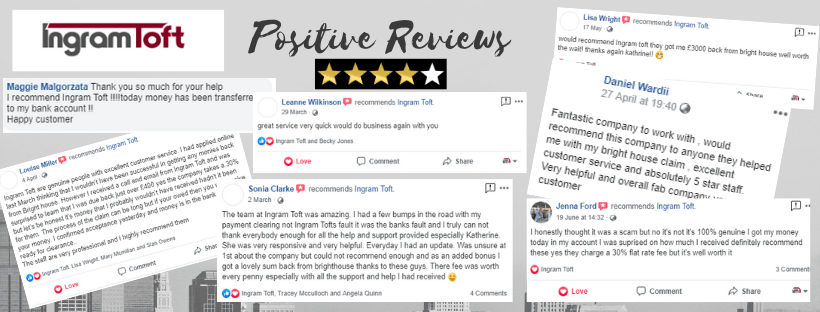PCP vs. HP Claims: Key Differences in Mis-Selling and Compensation
Did You Know Over 50% of Car Finance Agreements Could Be Mis-Sold?
If you’ve ever taken out a PCP (Personal Contract Purchase) or HP (Hire Purchase) agreement, you might have been misled about hidden commissions, unfair terms, or excessive interest rates. Thousands of UK drivers are now reclaiming compensation—but the process differs significantly between PCP and HP claims.
At Ingramtoft.co.uk, we specialise in helping consumers navigate car finance mis-selling claims. This guide breaks down the key differences between PCP and HP claims, including commission structures, evidence requirements, and typical compensation payouts.
Keep reading to discover whether you’re owed thousands—and how to claim what’s rightfully yours.
1. Understanding PCP and HP Finance Agreements
Before diving into mis-selling claims, it’s crucial to understand how these finance types work:
What Is a PCP (Personal Contract Purchase)?
- You pay lower monthly instalments compared to HP.
- At the end of the term, you can:
- Return the car (with no extra costs, subject to fair wear and tear).
- Pay a balloon payment to own the vehicle.
- Trade it in for a new deal.
- The lender sets a Guaranteed Minimum Future Value (GMFV), affecting your payments.
What Is an HP (Hire Purchase) Agreement?
- You pay fixed monthly instalments until you fully own the car.
- No balloon payment—once the final instalment is paid, ownership transfers automatically.
- Typically higher monthly payments than PCP.
Key Takeaway: PCP agreements often involve hidden commissions and inflated interest rates, while HP mis-selling usually relates to undisclosed fees or affordability issues.
2. How Mis-Selling Happens in PCP vs. HP Agreements
Common PCP Mis-Selling Tactics
✅
Undisclosed Broker Commissions – Dealers earned secret kickbacks for inflating interest rates.
✅
Misleading GMFV Projections – Overestimating the car’s future value to lower monthly payments.
✅
Pressure Selling – Pushing PCP deals without explaining risks (e.g., excess mileage charges).
Common HP Mis-Selling Tactics
✅
Hidden Fees & Charges – Unexpected admin costs or early repayment penalties.
✅
Affordability Failures – Lenders not checking if you could realistically afford repayments.
✅
False Promotions – Advertising "0% interest" deals that later included high APR.
Did You Know? The Financial Conduct Authority (FCA) found that over 90% of car finance brokers received discretionary commission, leading to higher costs for consumers.
3. Key Differences in PCP vs. HP Claims
Factor
PCP Claims
HP Claims
Commission Structure
Often hidden dealer kickbacks (higher interest rates)
Typically lower, but may involve hidden fees
Evidence Needed
Loan agreement, GMFV details, commission disclosures
Contract terms, affordability checks, fee breakdown
Compensation Range
£1,000–£5,000+ (due to inflated interest)
£500–£3,000 (often for hidden charges)
Claim Complexity
Higher (proving commission influence is key)
Lower (focus on affordability & transparency)
Which Claim Is Right for You?
- PCP claims are stronger if you suspect undisclosed commissions or unfair interest rates.
- HP claims are better if you were misled about fees or given an unaffordable loan.
Pro Tip: If you’re unsure, Ingramtoft.co.uk offers a free eligibility check to assess your case.
4. How to Claim Compensation for Mis-Sold Car Finance
Step 1: Gather Key Documents
- Your finance agreement (PCP or HP contract).
- Any emails or letters from the lender/dealer.
- Proof of repayments and extra charges.
Step 2: Check for Mis-Selling Red Flags
- Were commissions disclosed?
- Did the dealer pressure you into the agreement?
- Were the terms (mileage limits, fees) clearly explained?
Step 3: Submit a Complaint
- Contact the lender first—they have 8 weeks to respond.
- If rejected, escalate to the Financial Ombudsman Service (FOS).
Success Story: "John recovered £4,200 after discovering his PCP deal included a hidden £1,500 broker commission."
5. FAQs: PCP & HP Mis-Selling Claims
Q1: How much compensation can I get from a PCP claim?
A: Typically £1,000–£5,000+, depending on interest overpayments.
Q2: Can I claim if my HP agreement was years ago?
A: Yes! The FCA allows claims up to 6 years after the agreement ends.
Q3: Do I need a solicitor to file a claim?
A: Not necessarily—Ingramtoft.co.uk handles claims on a no-win, no-fee basis.
6. Conclusion: Take Action on Your Mis-Sold Car Finance
If you’ve ever taken out PCP or HP finance, there’s a high chance you were mis-sold the agreement. The key differences lie in commission structures, evidence needed, and compensation amounts—but both can result in significant refunds.
Ready to check if you’re owed money?
✅
Get a free, no-obligation assessment at
Ingramtoft.co.uk today!
✅
Share your story below—have you faced unfair car finance deals?
Don’t wait—claim what’s rightfully yours before deadlines apply!
Here are the areas of claims we deal with:
Affordability Claim:
- Guarantor Loan
- Doorstep Lending
- High Cost Lending
- Catalogue Credit
- Credit Card
- Logbook Loan Claim
- Rent-to-Buy
- Pawnbroker Claim
Non-Affordability
Mis-selling
- Mis-sold Broadband
- Packaged Bank Account
- Mis-sold Motor Insurance
- Miscalculated Mortgage
- Mis-sold Home Insurance
- Mis-sold Mobile phone insurance
- Critical Illness Insurance Claim
- Mis-sold Car Finance
Nevertheless, we have represented individuals in diverse legal areas and the list is continuously growing.
The reason why we posted this blog is for you! We wanted to build your trust and encourage you to interact with us. If you have questions, suggestions or recommendations, we encourage you to share your thoughts here to help us improve our processes to better serve you in the future.
Comment below!
Guarantor Loan Compensation: What is it all about?
NOTE: if your household income has been affected by the pandemic, you can ask Amigo and other guarantor lenders for a three-month payment break. During this time the lender should NOT be able to ask you or your guarantor for payment. If you already had one payment break, you can ask for a second three-month break if you are still affected.
This applies whether or not you are making an affordability complaint, which is what the rest of this article is about.
A guarantor loan is an expensive loan. Amigo is one of several lending companies that offer this type of loan. They have recently admitted to their flaws such as their inability to execute affordability checks prior to lending. They have also confirmed to have put aside millions of pounds to redress claims.
Their clients had overlapping loans and struggled with their payments. Believing that they were mis-sold loans, they will be able to make their claim for any fees and charges paid plus an additional 8% compensatory interest.
This is not only applicable to Amigo loans. You may also submit a claim against other guarantor lending companies. Here are some of the companies we deal with:
1Plus1
SUCO
Buddy Loans
Talk Loans
George Banco
TFS
Guarantor My Loan
TrustTwo
LendFair
UK Credit
Glo Guarantor
What is expected from the lender before granting a loan?
Proper assessments should have included a review of one or more of the following:
- A review of our client’s bank statements
- An analysis of our client’s income and expenditure
When a customer asks for a loan, the lending company must conduct proper credit and affordability checks to ensure the customer will be able to repay the loan. However, these important steps are somewhat neglected, especially for the repeat customers. In most cases, the lender would allow a customer to make a reloan without checking their current financial situation and without reviewing any change made during or after they had taken the previous loan.
More often than not, the lending company grants another loan even before the client finishes the previous one. This entails irresponsible lending which the customer can complain about. Our basis for filing a complaint falls under the general heading of Inadequate Affordability Assessments.
Watch our short video regarding Guarantor Loan Claim: https://youtu.be/KKleMpRCqoo
Who are entitled to a compensation?
If you are a borrower or a guarantor, you can qualify for a claim if you relate to any of the following reasons:
- The loan was unaffordable to you.
- A top-up to a previous loan was not explained to you.
- You were pressured into becoming a guarantor.
- You had other financial links to the borrower.
- You did not properly understand what being a guarantor meant.
What is an affordability complaint?
Paying early does not mean the loan is affordable. It should rather cause concerns to the lending company. That could be the sort of behaviour indicating that someone is facing problems in managing their money and may need to refinance with loans on a regular basis. So, taking that into account before lending another loan would have been reasonable and responsible.
Of course, the loan payments being affordable on this basis might indicate that a consumer could sustainably make their repayments because they were paid early. However, it does not automatically follow in this case. This is because the Consumer Credit Sourcebook ("CONC") defines sustainable as “being without undue difficulties.”
In particular, the customer should be able to make repayments on time, while meeting other reasonable commitments and without having to borrow to meet the repayments. It also follows that a lender should reasonably and fairly realise that a borrower will not be able to make their repayments sustainably if they are unlikely to make their repayments without having to borrow further.
If this situation is familiar, you might need to make an affordability complaint.
In 1991, the new council tax system was launched. The government needed every property in the land to be put in a valuation band. But because time was short and the job was extensive, the people in charge asked estate agents and other relevant parties for help to hasten the process.
Despite having all hands on deck, it was not enough to cover each property accurately. As a result, you may have been wrongly evaluated. You could be paying more than your neighbor, even though you live in exactly the same property size.
A lot of people are overpaying their council tax without even realizing it. Here are some of the reasons for overpayment:
- You did not sign up for a single person’s discount. If you are living by yourself, you are entitled to a 25% discount.
- You are living with a person with severe mental impairment such Alzheimer’s or Parkinson’s Disease. As such, you should be getting a 25% discount.
- You are in the wrong band, also known as a banding alteration.
- A discount has been awarded.
- An exemption has been awarded.
- A customer leaves the property and ends their liability.
- Council tax support has been awarded.
- Customer has simply overpaid.
If you are not getting your entitled discount for years, you must put a complaint in to claim it back.
Changes that may affect your Council Tax band
Your property may be revalued and put in a different band due to certain circumstances, for example:
- You demolish part of your property and did not rebuild it.
- You alter your property to create 2 or more self-contained units, such as an annex wherein each unit will have its own band.
- You split a single property into self-contained flats.
- You convert flats into a single property.
- You start or stop working from home.
- The previous owner made changes to your property.
- There are significant changes to your local area, such as a new road being built.
- A similar property in your area has its Council Tax band changed.
Who has to pay?
You will usually have to pay Council Tax if you are 18 and above and you own or rent a home.
A full Council Tax bill is based on at least 2 adults living in a home. Spouses and partners who live together are jointly responsible for paying the bill.
You will get 25% off your bill if you count as an adult for Council Tax and either:
- You live on your own; or
- No-one else in your home counts as an adult.
You are entitled to a 50% discount if no-one living in your home counts as an adult, including yourself.
You will not have to pay any Council Tax if everyone in your home is a full-time student, including yourself.
Check if you need to pay any Council Tax or if you are eligible for a Council Tax discount.
Who does not count as an adult?
These people are not counted as adults for Council Tax:
- Children under 18
- People under apprenticeship schemes
- 18 and 19-year-olds in full-time education
- Full-time college and university students
- Young people under 25 who get funding from the Skills Funding Agency or Young People’s Learning Agency
- Student nurses
- Foreign language assistants registered with the British Council
- People with a severe mental impairment
- Live-in carers who look after someone who is not their partner, spouse, or child under 18
- Diplomats
Challenge
What happens if you do not agree with the outcome of a check?
Most enquiries are expected to be resolved during a check as the process is based on facts about your property.
Once a check is completed, you can challenge any valuation related to the same property within four months of the check decision, or within 16 months of your check submission if the challenge is about a change in the surrounding area. You may also make a challenge if the VOA has not made a decision on your check after 12 months. Properties may have several valuations from different dates due to physical facts changing over the period of the rating list.
You must have submitted a check before you can make a challenge.
One report stated that a resident from Stockton-on-Tees, County Durham questioned how much Council Tax he was paying. His challenge was initially rejected but he took his case further and was able to move his band from 'C' to 'B' – saving about £25/month on current council tax rates and getting £200 back in overpayments. Another resident who has been living in the same neighborhood since 2001 got £1,000 back.
Note: A refund will only be completed if your account is in credit and you do not owe any other amounts of Council Tax. If you move house within the city, any credit on your previous address will be transferred to your new address. If you have moved outside the city and have overpaid, then a refund will be made.
If you are certain you were overpaying your Council Tax, Ingram Toft can help you. Simply fill out our form and our expert legal advisers will build a solid case and put in a complaint for you.
You could receive a refund and be in a lower council band in less than 2 weeks.
Contact us today!





